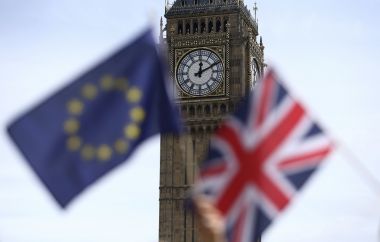I know you're not a racist. Now is the time to prove it.

I've already been told to go home.
It came from a stranger in the comments section of a friend's social media post in which we were debating the state of the UK post-Brexit. Due to the reported 57 per cent rise in xenophobic incidents, I was not surprised by the comment that a fortnight ago would have knocked me sideways.
I could tell something had changed in the air last Thursday evening as I walked back to my flat having voted and was passed on the street by two white skinheads who sneered at me for no reason. Or maybe they did have a reason: they mistakenly believed they had just voted for me to leave the country I have called home since I was four years old. I had not felt this sense of uneasiness in my own community since the days, weeks and months following Stephen Lawrence's murder. I was nine years old when he was fatally stabbed at a bus stop round the corner from where I lived.
I remember the fear. And that familiar feeling has returned.
Of course, I can't say for certain why the men I passed on the street did what they did. But in the past seven days, it seems my suspicions and fears have been realised with people from ethnic minorities up and down the country facing horrific, unbridled, out-and-out racism. As Michael Keith from Compas – Oxford University's migration research centre – has said: "The unspeakable became not only speakable, but commonplace."
So here we are. The Pandora's Box has been opened and a few hateful, prejudiced people are having a field day. I am very well aware that the overwhelming majority of people who voted leave are not racists. The vast majority were good, honest people who were doing what they thought was best for our country's future; some who had very real, tangible concerns about the levels of immigration in their communities. But the voices of a tiny minority are speaking louder than others' attempts to silence them. And the Church has got to do better at calling this out.
Christians must see it as a priority now to demonstrate solidarity with those who are fearful about the future and their place in Britain. We must send out a loud and clear message that God's love does not discriminate. Men and women of all ages and all backgrounds and all social classes and all ethnicities are welcome in God's kingdom.
We must refuse to sit back and let our neighbours be abused. But we must also recognise that racism happens in churches too. This is not OK. We must not tolerate prejudice and xenophobia of any kind in our midst. We must listen when those in our churches and communities from ethnic minorities are telling us that they feel unsafe and unwelcome here now. We must report any incidents of racism that we see in our communities. And we must work tirelessly to get our country back, pushing racism back into its box – no matter what side of the Brexit debate we found ourselves. It is naïve to think we can totally eradicate racism from our society. But the past few days have shown that there was something bubbling underneath the surface that has now been unleashed. In light of this, we've got to offer the hand of friendship to all, not in a trite or superficial way, but with a deep level of understanding that is rooted and established in love.
I had the privilege of visiting Auschwitz for a second time on Sunday. The haunting words from George Santayana that can be found within the exhibition took on a new sense of urgency as I – a British-Nigerian visiting Poland – looked up at them in the week after the EU referendum: "Those who forget the past are condemned to repeat it."
Leaders in public life must condemn the incidents we have been seeing on our streets in the past few days – and many already have. But the Church has a special responsibility to be peacemakers and rebuilders of broken walls at times like this.
I will not tolerate a world where racism goes unchallenged. It runs so contrary to the hospitable, open-armed, welcoming love of Christ, who we are supposed to imitate. Are you up for the challenge?
Chine McDonald is director of communications at the Evangelical Alliance. Follow her on Twitter.
After the 2014 referendum in Scotland the Evangelical Alliance produced a short booklet, written by Rev Gordon Kennedy, to help the Church engage in the crucial work of reconciliation. In light of the referendum result, they are are reissuing this text in firm view that this work is more vital than ever.











